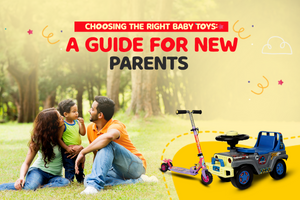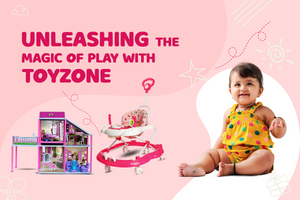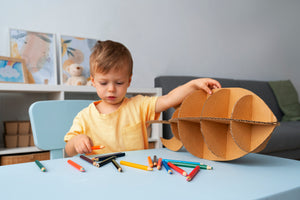
Top 10 Good Parenting Tips
Parenthood is one of the most challenging and rewarding experiences you can have. It is an ongoing process where parents learn, grow, and adapt. It puts you in situations you have never experienced, making you feel overwhelmed and unsure.
If you are a first-time parent looking for some guidance, here are a few effective parenting tips to help you through this journey:
1. Be Present and Listen to Your Child
A crucial thing you must know as a parent is that your child needs your undivided attention, especially in their formative years. Listening to your child and giving them the attention they need helps them feel understood.
Engage them in conversations and activities that interest them.
2. Practice positive reinforcement
Positive reinforcement is a powerful tool to motivate and encourage children. Praise your child for their efforts and achievements, no matter how small. This is a critical mechanism that boosts their self-esteem and confidence.
3. Set Clear Boundaries and Consequences
Children thrive when they have clear boundaries set for them.
Setting clear rules and consequences is a significant factor that impacts the development of their behaviour and reactions to situations.
In addition, these boundaries make them feel safe and secure and add structure to their routine. These boundaries also help them understand the concept of what is right and wrong.
4. Encourage creativity
Children are naturally curious and imaginative. Encourage their creativity and allow them to explore, especially with toys and games such as building blocks, an abacus, board games, and whiteboards.
Playing with these toys improves your child's hand-eye coordination. Toys like building blocks, an abacus, or pretend dolls stimulate imagination and concentration.
5. Teach Your Child Responsibility
Teaching your child responsibility is crucial to Parenting. It helps them develop independence and self-reliance.
Please encourage your child to take on age-appropriate tasks, such as doing laundry or arranging their toys. Additionally, it would help if you appreciated their independence, teaching them to become more self-sufficient as they grow.
6. Ractice empathy
Empathy is essential for solid relationships. When you practice kindness as a parent, you make them feel heard. It makes your child feel that their feelings are valid and it is okay to feel the way they do.
Try to understand your child's perspective by putting yourself in their shoes. Empathy can help you respond more compassionately to their needs.
7. Use positive discipline techniques
Positive discipline techniques teach your child to make wise choices and behave appropriately. These techniques focus on teaching rather than punishing.
For example, instead of yelling at your child for misbehaving, you can calmly explain why their behaviour is unacceptable.
8. Spend quality time together
Spending quality time with your child is essential to building a healthy relationship. So set aside regular time for one-to-one activities that you both enjoy. It can be as simple as reading a book together or walking.
You can also plan special activities with your child, such as a trip to the zoo, a movie night at home, or a picnic in a park.
9. Model positive behaviour
Children learn by example. Modelling positive behaviour can help them develop positive habits and values.
Try demonstrating kindness, respect, and empathy in your interactions with people and your child. Use polite language and try to avoid yelling or using hurtful words.
10. Practice self-care
Caring for yourself is essential to Parenting. It is common to become overwhelmed and stressed, but it's crucial to prioritize your well-being. Make sure to make time for yourself, that you are eating well and getting enough sleep.
Practising these tips can help you build a strong and healthy relationship with your child and help them grow into confident and responsible adults. Remember, no one is an ideal parent, and making mistakes is okay. What is essential is to keep learning and growing together.







